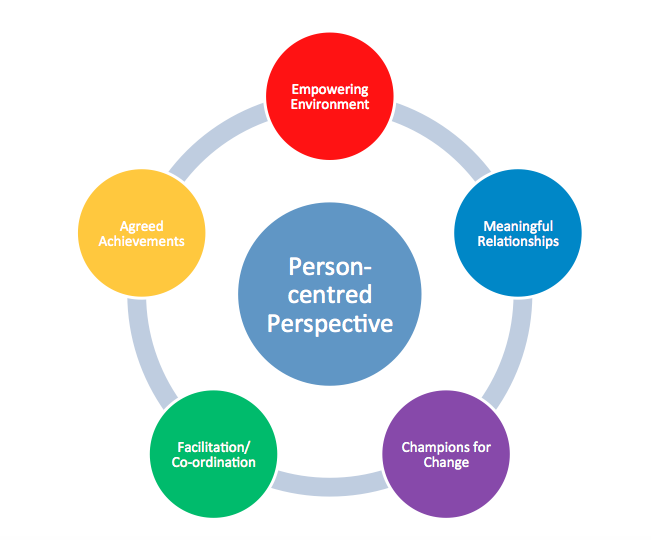What is Partnership?
For the purposes of this approach, ‘Partnership’ is defined as a collaborative relationship between people from different agencies, disciplines and/or programs. The approach is an endeavour to cross ideological and structural boundaries to build meaningful relationships that improve the functioning of the system and ultimately the experience of people using community services.
...an endeavour to cross ideological and structural boundaries...
Why is Partnership Important?
In community services we are all aware of the frustrations people experience when trying to access the support they need. As practitioners, we encounter the systemic barriers ourselves each day as we try to assist people with referrals, statutory requirements and multiple agency involvement.
The most important reason for effective partnerships in human services is to improve people’s experience of accessing the support they need, when they need it.
With a more integrated service system we will all be able to more effectively assist people without the burdens of unnecessary administration, duplicated effort, or barriers to support. Partnership can help to reduce the unexplained variation in the care people receive across the sector. It can address cross-sectorial frustrations through increased understanding of different approaches, different perspectives and different restrictions to service provision.
High level structural change is also vital but may not be within the realm of possibility for a group of community organisations with restricted funding. In order to effect positive change through partnership the challenge must be cultural (Fook & Askeland). A cultural change is within the control of any community services group that aspires to it and can have meaningful effects for the people we support.
What is a Person-Centred approach to Partnership?
This module, about applied inter-agency collaboration, explores operational concerns for professionals from a variety of different disciplines coming together.
Collaboration with other service providers as well as family and community is vital to supporting people in complex situations.
Unfortunately true collaborative efforts rarely occur because each care team member is too confined to their area of responsibility to consolidate efforts towards a shared purpose.
In this approach to partnership the shared purpose is vital and it must underpin all the partnership does. It is the way in which meaningful relationships are built and it is the force which breaks through differences of perspective. This approach assumes that the shared purpose or common agenda must be a commitment to person-centred service delivery. In the context of the individual receiving support from a multitude of organisations, this means the shared purpose must unanimously be to support that person to achieve their aspirations.
Therefore to create and support partnership, all members must adhere to the key philosophy of a person-centred approach. The approach can be broken down into five essential elements for a successful partnership:
- Empowering environment
- Meaningful relationships
- Champions for change (the partnership members)
- Faciliation/co-ordination (the driving element)
- Agreed achievements (goal focused interventions)

What are the applications?
This learning module can assist with the formation or continuation of any kind of cross-sector relationship, whether it is a formal partnership or informal collaboration. It is applicable to a variety of circumstances because it outlines a way of viewing these relationships and a way of approaching them. The approach is not overly prescriptive but rather explores vital elements that are important for a successful partnership. It can therefore be innovatively applied in various contexts from the convening of a care team to a state-wide community of practice. It can be applied to bring more coherence across different programs within the same organisation. It is assumed that regardless of the context, partnerships are created to improve services for people.
